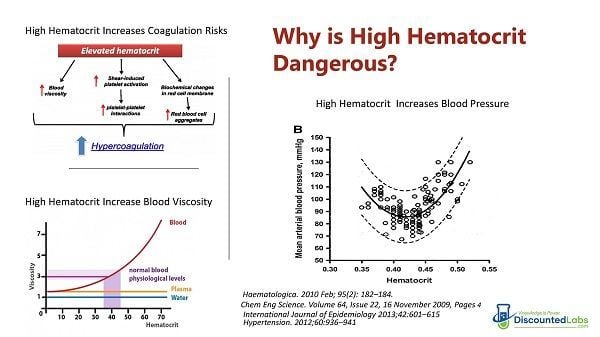my general doc panicked, told me to immediately stop TRT (not my hormonal clinic)
wants to refer me somewhere. stopping not an option.
I had 2 readings, 1 before blood donation, 1 after:
before donation:
RBC - 6.40
Hemoglobin - 18.8
hematocrit - 55.8
after donation:
RBC - 6.06
Hemoglobin - 18.0
Hematocrit - 53.3
general doc says still too high. I have no symptoms. but I can't donate for 2 months or so.
i'm on 150mg TRT 3x week. would daily dosing help? or maybe reduce a bit. again, I feel ok
wants to refer me somewhere. stopping not an option.
I had 2 readings, 1 before blood donation, 1 after:
before donation:
RBC - 6.40
Hemoglobin - 18.8
hematocrit - 55.8
after donation:
RBC - 6.06
Hemoglobin - 18.0
Hematocrit - 53.3
general doc says still too high. I have no symptoms. but I can't donate for 2 months or so.
i'm on 150mg TRT 3x week. would daily dosing help? or maybe reduce a bit. again, I feel ok

























